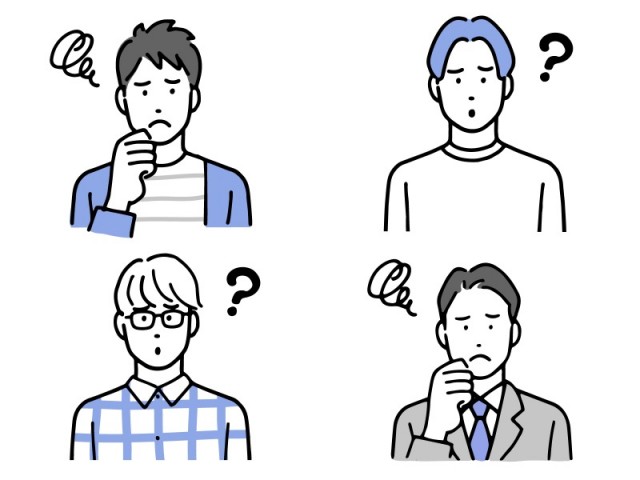Who's The World's Top Expert On Assessment For Mental Health?
ページ情報
照会 6回
作成日: 23-11-30 21:13
본문
Mental Health Assessments
A mental health assessment is a vital instrument for helping people evaluate their mental health. Professionals employ a variety of tools to help with this such as self-report and standardized tools.
A mental health exam is one of the most common. It allows counselors and doctors to look at the client's appearance as well as their attitude and behavior. They can also note their mood, emotions, and thoughts.
Symptoms
People who suffer from mental health issues often experience changes in their emotions, thinking and behaviour. This can impact their ability to work and interact with others. Mental illness is a real health condition and many of the same factors that can affect our physical health are connected to our mental health, like diabetes, heart disease, and cancer.
Every person experiences ups and downs in their mood. However, if these changes are severe and persist for a long period it could be an indication of a mental health services illness. The most common signs are changes in sleeping and eating habits or energy levels; an abrupt increase or reduction in emotions such as sadness, happiness or anger; difficulties recalling or concentrating on things and being tired all the time. If you are concerned about your loved ones it's important to not ignore them. Early intervention can help prevent mental health issues from becoming worse.
These changes are usually caused by life events like losing work, family issues or a serious accident. It's important to get treatment for a mental illness so it doesn't interfere with your relationships and work. Some of these illnesses may be treated with counseling or medication. Some conditions require hospital treatment.
There are more than 200 distinct mental disorders, including depression, anxiety disorders, schizophrenia, and bipolar disorder. Some of them are life-threatening. Some phobias are milder and don't affect daily life as much.
Mental health is affected in many ways, such as genetics, biological differences, life experiences stress, lifestyle choices, and how society treats its members. It is important to recognize that mental health practitioners illness is not something to be ashamed of. Similar to heart disease and diabetes, it can be treated and improved.
Mental illness can be treated and many sufferers recover with the appropriate treatment. This could include psychotherapy (talk therapy) or medications, such as antidepressants and sedatives. Combining treatments is typically the most efficient. Self-help groups and support groups can be beneficial for some people.
History
A mental health history is an important part of any assessment. A psychiatrist should also be aware of your medical history, and whether you have relatives suffering from mental illness. They will inquire about your current medications, and any other drug or alcohol abuse you may have experienced in the past. In some instances doctors may request you to write down your symptoms in journals or bring a family or friend member along so they can be able to hear the whole story.
A mental health assessment can be the first step for some individuals to seek treatment for a specific problem. It is typically initiated by a doctor or another professional who refers the patient, but can be initiated by the person. The psychiatric examination will give professionals with the data they require to make a diagnosis.
Western civilization has considered mental illness as a result of supernatural forces or demon possession throughout recorded history. This resulted in primitive treatments such as drilling a small hole in the skull (trepanning). The 18th and 19th centuries saw the rise of a more humane approach to treating the mentally ill, as doctors began to abandon these superstitions and adopt logical explanations/theories for their patients.
Today, the term "mental health" is used in two ways: to refer to a state of health; and as a broad concept that covers psychiatry as well as psychotherapy. Although there is a broad movement to establish mental health apart from psychiatry to establish it as a separate discipline however, this distinction is not yet been fully recognized.
Mental health is defined differently in different cultures, however the majority of them include aspects such as self-realization and satisfaction, happiness, and mastery of one's environment. However, these standards are influenced by cultural values that can exclude adolescents who aren't fully achieving their potential, those who have low incomes, those living in communities that are poor or who suffer discrimination and rejection. Other assessment tools are used to help determine the health of a person's mental state, including the DSM-5 checklist, which includes the symptoms of specific disorders and the Life Events Checklist, which can be used to identify potentially traumatizing or distressing events that occur in the life of a patient.
Physical Examination
A psychiatrist or medical doctor will usually conduct the physical examination of a person who is suspected to have an issue with mental health. The assessment may be a part of the physical exam, or it may be performed when a health care provider believes that a specific illness such as dementia, schizophrenia or abuse of drugs is involved. The exam is a good chance to examine the patient's general appearance, as well as the manner they respond to questions, their emotional state and whether or not they are hungry, thirsty or sleepy.
The physician who examines will ask the person questions about how long they've been suffering from symptoms and any family history of mental health problems. The doctor will also want to know if the person has ever taken any medication, including over-the counter drugs and supplements.
A psychiatric examination is essential because it helps to find out what's happening within the patient and what treatment could aid. A diagnosis is essential and, in some cases, a person requires inpatient care or medication depending on the final diagnosis. The diagnosis is typically done in the hospital. However, some people might have a mental evaluation conducted at home by a licensed professional.
One of the major components of a mental health assessment is a test of cognitive function. This is the ability of paying attention, remembering and organizing information, solving problems, and making decisions. It also includes fundamental skills such as the ability of interfacing with other people. The test of cognition entails testing a person's spontaneity as well as the quality of their communication by having them answer open-ended questions or read standardized short stories. The evaluation of thought content is a process of looking for a variety of things, such as hallucinations that can be visual, auditory or olfactory. delusions of special powers or status, or even being a target for others; paranoid thinking or irrational fear as well as compulsive and obsessive behavior and compulsions; lack of connection (making irrelevant connections between different topics) as well as depressive and suicidal thoughts. Diagnostic tests, such as magnetic resonance imaging or blood tests, are usually required to complete the mental health assessment in mental health. These tests can help identify other disorders and diseases that may cause similar symptoms to mental illness.
Tests
The mental status exam focuses on multiple aspects of a patient's condition by direct questioning and Mental Health Assessments observation. A health care provider observes the patient's behavior and mood as well as their level of activity, as well as their overall appearance. It could also comprise an array of verbal or written tests that include the standard rating systems used to evaluate symptoms. The MMPI-2 is a standard depression test. There are many other tests to measure the level of intelligence, anxiety and autism.
A patient's medical history and physical exam will provide crucial information that can help determine if the symptoms are due to a psychological disorder or medical condition such as diabetes, hypothyroidism or drug abuse. Certain physical ailments like certain types of tumors or selective brain lesions, may also show up with the same symptoms as mental disorders. These conditions might require testing in a clinic or laboratory for blood tests, CT scans, or MRIs as an addition to a full mental health evaluation.
 Psychological testing is an important component of the mental health assessment. It can provide valuable information regarding how the patient is able to think, recalls, and interacts with others. These tests can be useful to identify symptoms like hallucinations or the tendency to make irrelevant connections between different subjects.
Psychological testing is an important component of the mental health assessment. It can provide valuable information regarding how the patient is able to think, recalls, and interacts with others. These tests can be useful to identify symptoms like hallucinations or the tendency to make irrelevant connections between different subjects.
A psychiatric examination may include questions about the patient's family history, which includes psychiatric illness and other illnesses. It will include how long symptoms have been present, and their severity and whether they affect daily activities. It will also inquire about any prior psychiatric issues the patient has had and the treatment they received in the past.
It is crucial for the patient to be honest about their answers as it will help the health care professional discern the extent of the patient's condition. During the interview the health professional will observe the patient's conversation and mental health Assessments how they interact. They will also inquire of the patient about any prescription or non-prescription drugs or supplements they are taking and how they affect their mental health clinic near me health.
A mental health assessment is a vital instrument for helping people evaluate their mental health. Professionals employ a variety of tools to help with this such as self-report and standardized tools.
A mental health exam is one of the most common. It allows counselors and doctors to look at the client's appearance as well as their attitude and behavior. They can also note their mood, emotions, and thoughts.
Symptoms
People who suffer from mental health issues often experience changes in their emotions, thinking and behaviour. This can impact their ability to work and interact with others. Mental illness is a real health condition and many of the same factors that can affect our physical health are connected to our mental health, like diabetes, heart disease, and cancer.
Every person experiences ups and downs in their mood. However, if these changes are severe and persist for a long period it could be an indication of a mental health services illness. The most common signs are changes in sleeping and eating habits or energy levels; an abrupt increase or reduction in emotions such as sadness, happiness or anger; difficulties recalling or concentrating on things and being tired all the time. If you are concerned about your loved ones it's important to not ignore them. Early intervention can help prevent mental health issues from becoming worse.
These changes are usually caused by life events like losing work, family issues or a serious accident. It's important to get treatment for a mental illness so it doesn't interfere with your relationships and work. Some of these illnesses may be treated with counseling or medication. Some conditions require hospital treatment.
There are more than 200 distinct mental disorders, including depression, anxiety disorders, schizophrenia, and bipolar disorder. Some of them are life-threatening. Some phobias are milder and don't affect daily life as much.
Mental health is affected in many ways, such as genetics, biological differences, life experiences stress, lifestyle choices, and how society treats its members. It is important to recognize that mental health practitioners illness is not something to be ashamed of. Similar to heart disease and diabetes, it can be treated and improved.
Mental illness can be treated and many sufferers recover with the appropriate treatment. This could include psychotherapy (talk therapy) or medications, such as antidepressants and sedatives. Combining treatments is typically the most efficient. Self-help groups and support groups can be beneficial for some people.
History
A mental health history is an important part of any assessment. A psychiatrist should also be aware of your medical history, and whether you have relatives suffering from mental illness. They will inquire about your current medications, and any other drug or alcohol abuse you may have experienced in the past. In some instances doctors may request you to write down your symptoms in journals or bring a family or friend member along so they can be able to hear the whole story.
A mental health assessment can be the first step for some individuals to seek treatment for a specific problem. It is typically initiated by a doctor or another professional who refers the patient, but can be initiated by the person. The psychiatric examination will give professionals with the data they require to make a diagnosis.
Western civilization has considered mental illness as a result of supernatural forces or demon possession throughout recorded history. This resulted in primitive treatments such as drilling a small hole in the skull (trepanning). The 18th and 19th centuries saw the rise of a more humane approach to treating the mentally ill, as doctors began to abandon these superstitions and adopt logical explanations/theories for their patients.
Today, the term "mental health" is used in two ways: to refer to a state of health; and as a broad concept that covers psychiatry as well as psychotherapy. Although there is a broad movement to establish mental health apart from psychiatry to establish it as a separate discipline however, this distinction is not yet been fully recognized.
Mental health is defined differently in different cultures, however the majority of them include aspects such as self-realization and satisfaction, happiness, and mastery of one's environment. However, these standards are influenced by cultural values that can exclude adolescents who aren't fully achieving their potential, those who have low incomes, those living in communities that are poor or who suffer discrimination and rejection. Other assessment tools are used to help determine the health of a person's mental state, including the DSM-5 checklist, which includes the symptoms of specific disorders and the Life Events Checklist, which can be used to identify potentially traumatizing or distressing events that occur in the life of a patient.
Physical Examination
A psychiatrist or medical doctor will usually conduct the physical examination of a person who is suspected to have an issue with mental health. The assessment may be a part of the physical exam, or it may be performed when a health care provider believes that a specific illness such as dementia, schizophrenia or abuse of drugs is involved. The exam is a good chance to examine the patient's general appearance, as well as the manner they respond to questions, their emotional state and whether or not they are hungry, thirsty or sleepy.
The physician who examines will ask the person questions about how long they've been suffering from symptoms and any family history of mental health problems. The doctor will also want to know if the person has ever taken any medication, including over-the counter drugs and supplements.
A psychiatric examination is essential because it helps to find out what's happening within the patient and what treatment could aid. A diagnosis is essential and, in some cases, a person requires inpatient care or medication depending on the final diagnosis. The diagnosis is typically done in the hospital. However, some people might have a mental evaluation conducted at home by a licensed professional.
One of the major components of a mental health assessment is a test of cognitive function. This is the ability of paying attention, remembering and organizing information, solving problems, and making decisions. It also includes fundamental skills such as the ability of interfacing with other people. The test of cognition entails testing a person's spontaneity as well as the quality of their communication by having them answer open-ended questions or read standardized short stories. The evaluation of thought content is a process of looking for a variety of things, such as hallucinations that can be visual, auditory or olfactory. delusions of special powers or status, or even being a target for others; paranoid thinking or irrational fear as well as compulsive and obsessive behavior and compulsions; lack of connection (making irrelevant connections between different topics) as well as depressive and suicidal thoughts. Diagnostic tests, such as magnetic resonance imaging or blood tests, are usually required to complete the mental health assessment in mental health. These tests can help identify other disorders and diseases that may cause similar symptoms to mental illness.
Tests
The mental status exam focuses on multiple aspects of a patient's condition by direct questioning and Mental Health Assessments observation. A health care provider observes the patient's behavior and mood as well as their level of activity, as well as their overall appearance. It could also comprise an array of verbal or written tests that include the standard rating systems used to evaluate symptoms. The MMPI-2 is a standard depression test. There are many other tests to measure the level of intelligence, anxiety and autism.
A patient's medical history and physical exam will provide crucial information that can help determine if the symptoms are due to a psychological disorder or medical condition such as diabetes, hypothyroidism or drug abuse. Certain physical ailments like certain types of tumors or selective brain lesions, may also show up with the same symptoms as mental disorders. These conditions might require testing in a clinic or laboratory for blood tests, CT scans, or MRIs as an addition to a full mental health evaluation.
 Psychological testing is an important component of the mental health assessment. It can provide valuable information regarding how the patient is able to think, recalls, and interacts with others. These tests can be useful to identify symptoms like hallucinations or the tendency to make irrelevant connections between different subjects.
Psychological testing is an important component of the mental health assessment. It can provide valuable information regarding how the patient is able to think, recalls, and interacts with others. These tests can be useful to identify symptoms like hallucinations or the tendency to make irrelevant connections between different subjects.A psychiatric examination may include questions about the patient's family history, which includes psychiatric illness and other illnesses. It will include how long symptoms have been present, and their severity and whether they affect daily activities. It will also inquire about any prior psychiatric issues the patient has had and the treatment they received in the past.
It is crucial for the patient to be honest about their answers as it will help the health care professional discern the extent of the patient's condition. During the interview the health professional will observe the patient's conversation and mental health Assessments how they interact. They will also inquire of the patient about any prescription or non-prescription drugs or supplements they are taking and how they affect their mental health clinic near me health.







